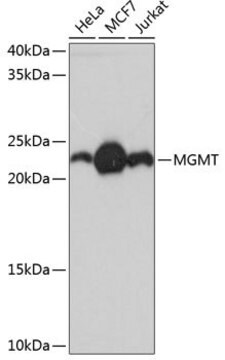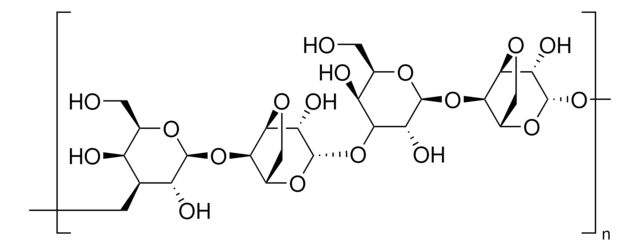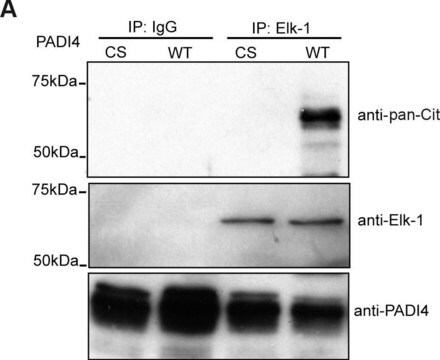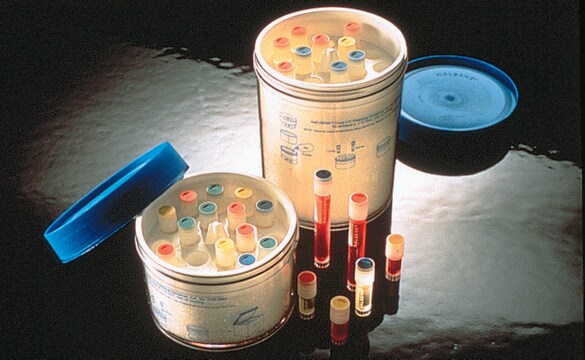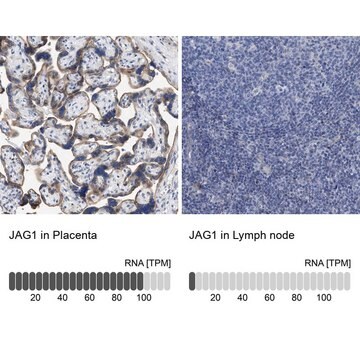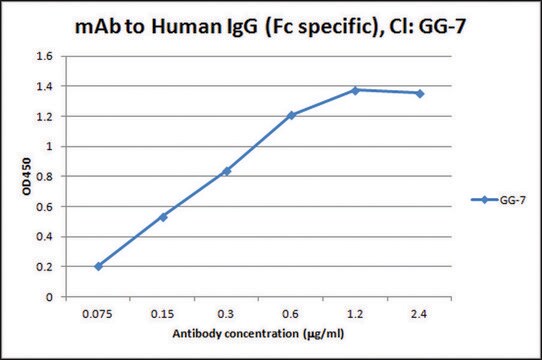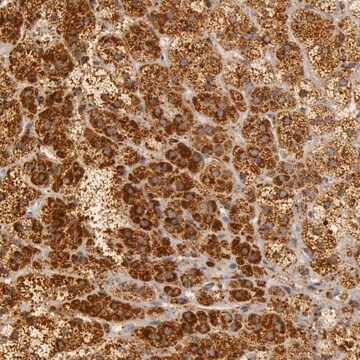C0730
Anti-CD137 antibody produced in goat
affinity isolated antibody, lyophilized powder
Synonim(y):
Anti-4-1BB
About This Item
Polecane produkty
pochodzenie biologiczne
goat
białko sprzężone
unconjugated
forma przeciwciała
affinity isolated antibody
rodzaj przeciwciała
primary antibodies
klon
polyclonal
Formularz
lyophilized powder
reaktywność gatunkowa
human
metody
capture ELISA: 0.2-0.8 μg/mL
flow cytometry: 2.5 μg using 106 human T cells treated with PHA
immunocytochemistry: 5-15 μg/mL
western blot: 0.1 μg/mL
zanieczyszczenia
<0.10 EU/μg endotoxin
numer dostępu UniProt
temp. przechowywania
−20°C
docelowa modyfikacja potranslacyjna
unmodified
informacje o genach
human ... TNFRSF9(3604)
Opis ogólny
Immunogen
Zastosowanie
- Agonist Activity: Measured by its ability to costimulate IFNg secretion by human T cells in the presence of anti-CD3. The ED50 for this effect is typically 5-20μg/mL.
- ELISA capture: It can be used as a capturing reagent in a human 4-1BB sandwich immunoassay in combination with biotinylated human 4-1BB detection antibody and recombinant human 4-1BB as the standard. The suggested coating concentration range is 0.2-0.8μg/ml. The recommended concentration of the detection antibody is 0.1-0.4μg/mL.
- Flow cytometry: 2.5μg/106 cells using Human T cells treated with PHA (phytohemagglutinin).
- Immunoblotting: A working concentration of 0.1μg/ml was determined using recombinant human CD137.
- Immunocytochemistry: 5-15μg/mL using immersion fixed human peripheral blood mononuclear cells.
Działania biochem./fizjol.
Postać fizyczna
Rekonstytucja
Oświadczenie o zrzeczeniu się odpowiedzialności
Nie możesz znaleźć właściwego produktu?
Wypróbuj nasz Narzędzie selektora produktów.
Kod klasy składowania
10 - Combustible liquids
Klasa zagrożenia wodnego (WGK)
WGK 1
Temperatura zapłonu (°F)
Not applicable
Temperatura zapłonu (°C)
Not applicable
Wybierz jedną z najnowszych wersji:
Masz już ten produkt?
Dokumenty związane z niedawno zakupionymi produktami zostały zamieszczone w Bibliotece dokumentów.
Nasz zespół naukowców ma doświadczenie we wszystkich obszarach badań, w tym w naukach przyrodniczych, materiałoznawstwie, syntezie chemicznej, chromatografii, analityce i wielu innych dziedzinach.
Skontaktuj się z zespołem ds. pomocy technicznej